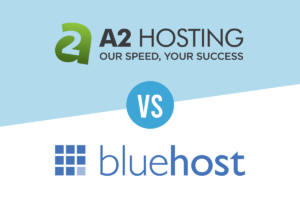Note: This is an iterative post, meaning it will build over time. I'm starting with some core notes and ideas, as a published outline, and I'll be building on this over time to get to a complete article, and then continue iterating on that. Why? Well that's the advantage of the web vs books and videos, you can easily keep it updated and fresh. Both users and Google reward freshness, and we'd assume other social platforms do as well. We'll learn.
What is the Facebook algorithm? How does it work? How can you optimize for it? How much traffic does it send? And more.
This post is written from a complete beginner in Facebook algorithms. If you're one of the approximately 90% of people that's also a beginner, this will be helpful! If you're a pro at Facebook algorithms, this likely isn't for you!
What I know off the top of my head about the Facebook algorithm
Here's a list of things I know about the Facebook algorithm, just from being in the digital marketing industry, reading widely, and just observing and listening. Assume half of this is wrong, and none of it is completely accurate, this is just where I'm starting out:
- From what I understand, given that Facebook has billions of users, it can essentially just constantly be a/b/n testing many features all the time on small percentages of Facebook users, to then get statistically significant evidence, or not, that their changes improve the experience.
- It's extremely likely that Facebook uses very smart data science teams to do exploratory analysis for ideas, then they work with product owners to hypothesize ideas to test
- It's likely 9/10 changes fail to improve things, but 1/10 has a big impact
- If they are anything like Google, they still have legions of thousands of humans filtering, monitoring, censoring, adjusting data all the time
- I think I recall Facebook having many different components of the app handled by entirely different teams, and these teams are likely competing for real estate for political clout and be proud of their work
- I would assume there's lots of competing interest in Facebook, which slows things down, but in the best case scenario only the best ideas win
- Facebook coined the term “move fast and break things” – so while they've shed that mindset as they've grown up, they're more likely than slower internet giants to move faster and test more things
- The algorithm, like Google's, is likely optimizing for what it has defined as “good content” and “good experiences”
- How do they decide what's “good” – probably a lot of data but finalized by human judgment. Huge example – the controversies over Russian influence during 2016 elections were likely from optimizing for engagement, but since then there's likely been a lot of human curation since.
Facebook Video Algorithm
- There is likely some huge incentive for 10-minute videos on Facebook. I've seen many that are just a few seconds over 10 minutes.
- Many of these videos really hype up the intensity and anticipation and show really drawn out scenes just to get people to watch
- Sadly, I have to say, I wonder how many who decide to sit through a 10-minute mindless video are able to know strongly that's not for their best interest in mind – for example, are younger children being sucked into the anticipation?
Other Areas to Build out Into New Sections
These areas will be built out into new sections next time:
- Facebook news feed algorithm
- Facebook “general” feed algorithm (and how other algorithms and components slide into this)
- Facebook groups – and how this is the only thing millennials use it for
- Facebook photos
- Facebook marketplace – and how this has won millennials over to bring them back – a more trusted Craigslist. What's interesting is that there's lots of scammers looking for phone number verifications where they hack into emails, yet Facebook isn't doing anything about this. Facebook is laissez-faire about moderation and will maybe lose to better moderated marketplaces over time unless they invest the funds into really good moderation and trust. There will likely be an AirBnb for selling – high-class and high quality at middle-class prices. Offerup is an improvement but not the whole answer here.
Last Updated on July 18, 2022 by Joe



